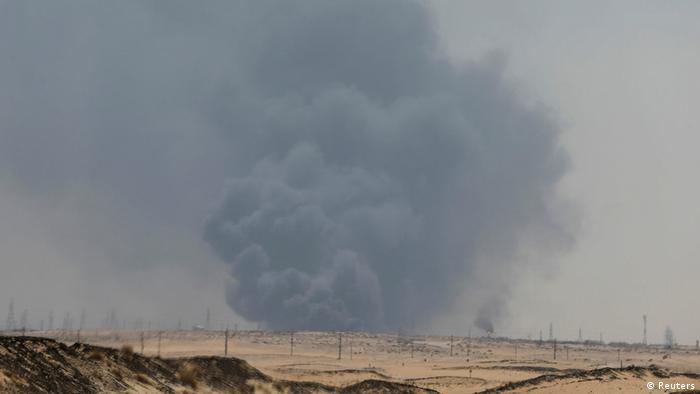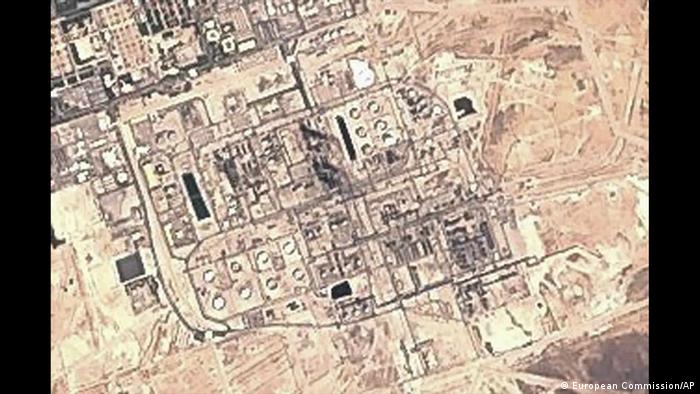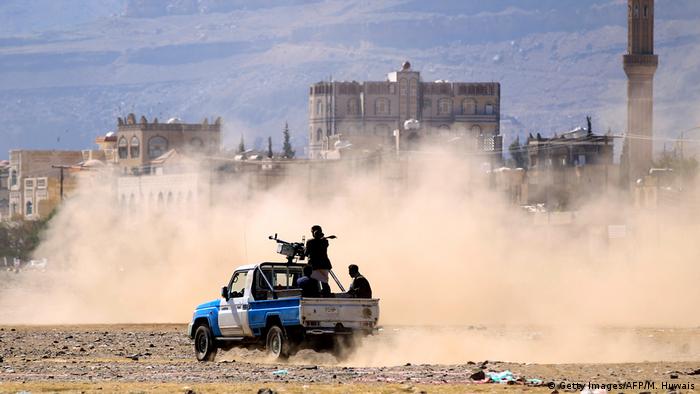Accuse, reject, threaten: After the attacks on the Saudi Arabian Oil industry exacerbated the situation in the Gulf Region. An Overview: What do we know and what is not.

The list of facts is not particularly long. Fixed: In the night of Saturday, two important oil Refineries drones into Saudi Arabia to be attacked. The economic damage is enormous – but at least estimate. It is different with the political consequences. At the very top of the question after the culprit is.
Who wants to have been – and who is not?
The Huthi rebels from neighboring Yemen known a short time later to the attack. Your subject: The rebels fighting in their country for years against the Yemeni government. While Iran is behind them. The Yemeni government is supported by an international coalition under the leadership of Saudi Arabia. Huthi spokesman Jihja Sari called on Saudi Arabia, the “Aggression” against Yemen and to end the Blockade of the country.
The reactions of the US were directed entirely against Iran. First, US Secretary of state Mike Pompeo spoke up. Via Twitter, he blamed Iran directly for the attacks, responsible. “In the midst of the Calls for de-escalation of Iran has perpetrated an unprecedented attack on the world energy supply. There is no evidence that the attacks came from Yemen,” said Pompeo.
Something vague President Donald Trump was on Sunday. “There is reason to believe that we know the perpetrators,” said Trump, via Twitter. The main argument of the United States: According to satellite images, the attacks have been perpetrated, rather, from the direction of Iran or Iraq – and not from the South of Yemen.

View from above: After the drone attack on the two refineries, the Oil production of Saudi Arabia declined sharply
The Iran rejected the allegations the U.S. vehemently back. The allegations are “unintelligible and absurd,” said the foreign Ministry in Tehran. They aimed “to justify future actions” against Iran. “Because of the US policy of maximum pressure has failed on Iran, are switched to the Americans now on the maximum lies.”
Of all the parties Involved was Saudi Arabia so far, most back. The government in Tehran has called the attacks an “act of terrorism”, has accused Iran in the past, directly. In the case of a still ongoing investigation, everything indicates, however, that “the weapons used in two attacks came from Iran,” said the spokesman of the Saudi Arabia-led military coalition, Turki al-Maliki, on Monday in Riyadh. Now was being investigated, from where the weapons were fired.
And what’s the next?
The Huthi rebels threatened on Monday with further attacks. The investments of the state Oil company Aramco, were in front of a target, said the militia. “We reassure the Saudi Regime that our long Arm can reach any desired place to the certain point in time,” said Huthi spokesman Jihja Sari on Monday.
On the other hand, assured Trump via Twitter, the United States was “locked and loaded” ready – without, however, the possible culprits, or to take concrete steps to call.
From Iran came so far, no sign of relaxation. On the contrary: The country has rejected speculation about a possible Meeting between their President Hassan Rouhani and the US head of state Donald Trump. There are “no plans”, that the two would meet on the sidelines of the upcoming General debate of the UN General Assembly in New York, said a spokesman for the foreign Ministry on Monday. Yet on Sunday it was out of the White house in Washington, a meeting between Trump and Rouhani is not excluded.
What is it now probably?
Political scientist Christian Hacke believes it is very likely that Iran is orchestrating attacks behind the Drones. “The question is, whether directly or indirectly.” Iran should be behind it, he would have sent a clear message. Namely, that the country could also damage without nuclear weapons, Saudi Arabia and the world economy.
What will now follow, in addition to experts, and perhaps also the parties to the conflict are not Clear. Common talks to a retaliatory strike is possible, says political scientist Christian Hacke of the DW. “The best would be to get together now, all in New York and say: So it goes.” But the most likely possibility was.
The interests were too strong and confrontational. “It is not likely to exclude, unfortunately, that there will be a longer war of attrition until both parties are exhausted and say: Now we are,” says hoe.

The Houthis brought in 2014, large areas of Yemen under their control, including the capital Sanaa.
It should come to a retaliatory strike, be Saudi Arabia, Israel, and the harsh forces in the United States, the three major players, says the analyst. “If it comes to that, is a whole other question.”
Because: the hardest part of the situation, according to hoe, the unpredictability of the US President, Donald Trump. “What he says is not at all congruent with what he is doing,” says hoe. “He can do drama, he can’t do anything, he can pull back. We don’t know it.”
The complex situation in the White house is yet to come. Who will be the new US national security adviser? How powerful US Secretary of state Mike Pompeo? And who still has influence on Donald Trump? “The uncertainty and unpredictability of one of the main players adds of course a lot to the already explosive situation.”